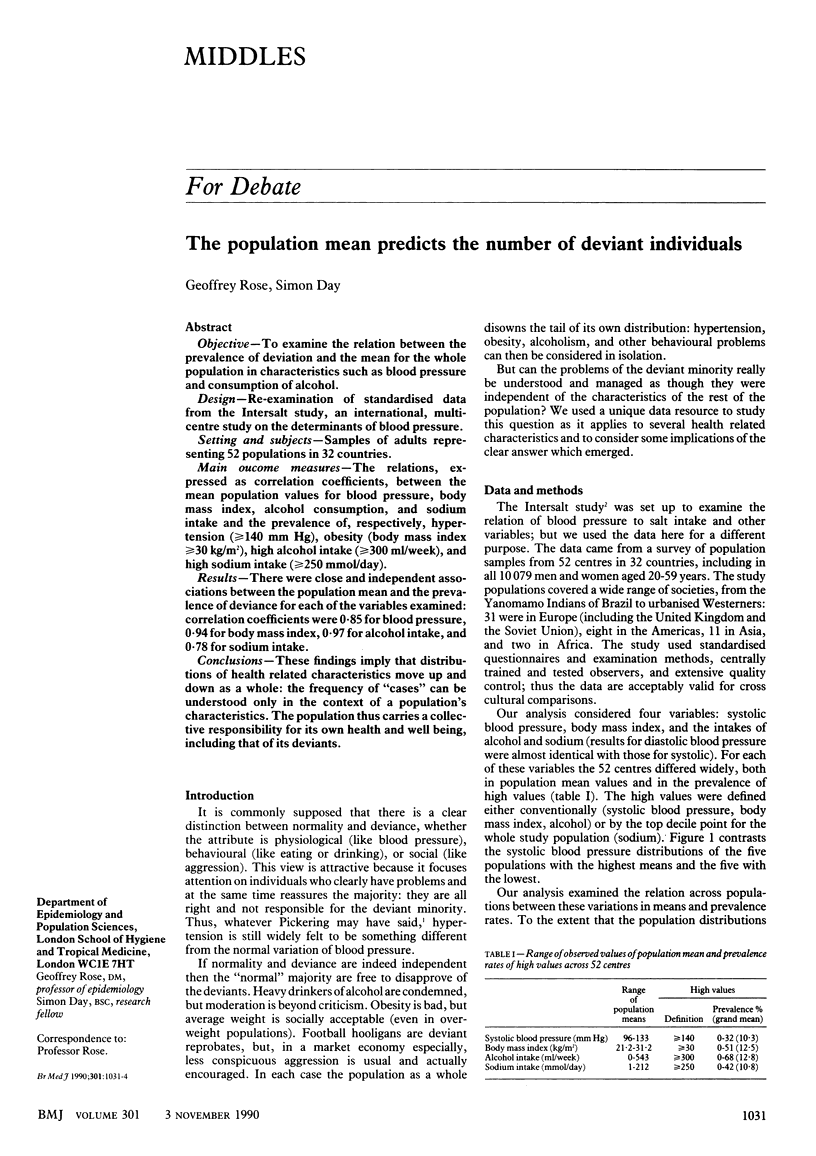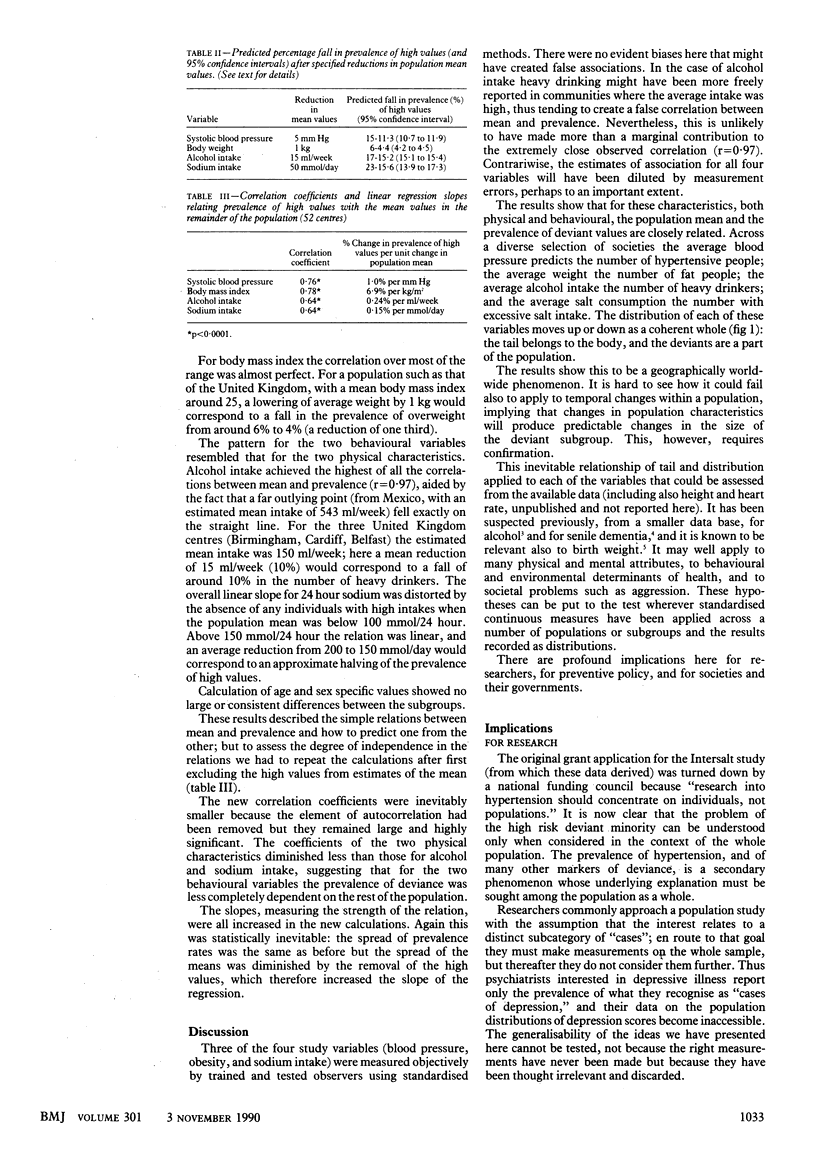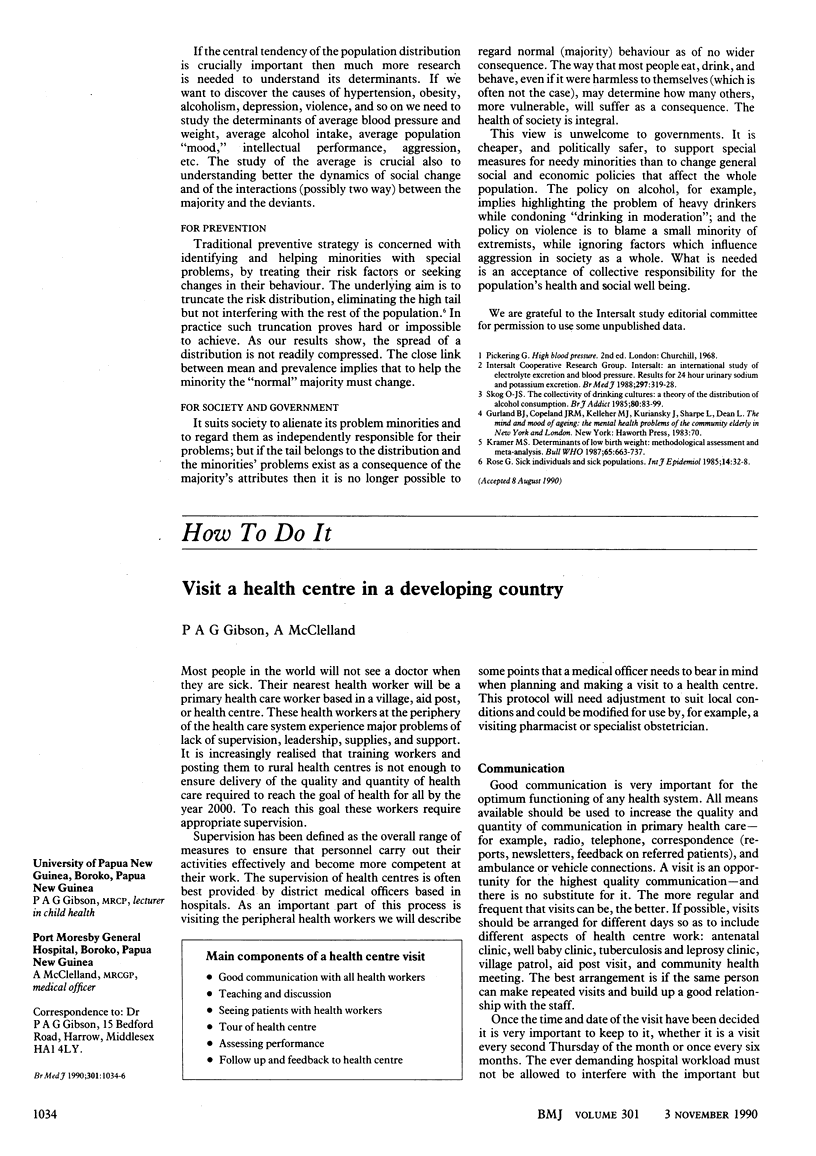Abstract
OBJECTIVE--To examine the relation between the prevalence of deviation and the mean for the whole population in characteristics such as blood pressure and consumption of alcohol. DESIGN--Re-examination of standardised data from the Intersalt study, an international, multicentre study on the determinants of blood pressure. SETTING AND SUBJECTS--Samples of adults representing 52 populations in 32 countries. MAIN OUTCOME MEASURES--The relations, expressed as correlation coefficients, between the mean population values for blood pressure, body mass index, alcohol consumption, and sodium intake and the prevalence of, respectively, hypertension (greater than or equal to 140 mm Hg), obesity (body mass index greater than or equal to 30 kg/m2), high alcohol intake (greater than or equal to 300 ml/week), and high sodium intake (greater than or equal to 250 mmol/day). RESULTS--There were close and independent associations between the population mean and the prevalence of deviance for each of the variables examined: correlation coefficients were 0.85 for blood pressure, 0.94 for body mass index, 0.97 for alcohol intake, and 0.78 for sodium intake. CONCLUSIONS--These findings imply that distributions of health related characteristics move up and down as a whole: the frequency of "cases" can be understood only in the context of a population's characteristics. The population thus carries a collective responsibility for its own health and well being, including that of its deviants.
Full text
PDF



Selected References
These references are in PubMed. This may not be the complete list of references from this article.
- Intersalt: an international study of electrolyte excretion and blood pressure. Results for 24 hour urinary sodium and potassium excretion. Intersalt Cooperative Research Group. BMJ. 1988 Jul 30;297(6644):319–328. doi: 10.1136/bmj.297.6644.319. [DOI] [PMC free article] [PubMed] [Google Scholar]
- Kramer M. S. Determinants of low birth weight: methodological assessment and meta-analysis. Bull World Health Organ. 1987;65(5):663–737. [PMC free article] [PubMed] [Google Scholar]
- Rose G. Sick individuals and sick populations. Int J Epidemiol. 1985 Mar;14(1):32–38. doi: 10.1093/ije/14.1.32. [DOI] [PubMed] [Google Scholar]
- Skog O. J. The collectivity of drinking cultures: a theory of the distribution of alcohol consumption. Br J Addict. 1985 Mar;80(1):83–99. doi: 10.1111/j.1360-0443.1985.tb05294.x. [DOI] [PubMed] [Google Scholar]



